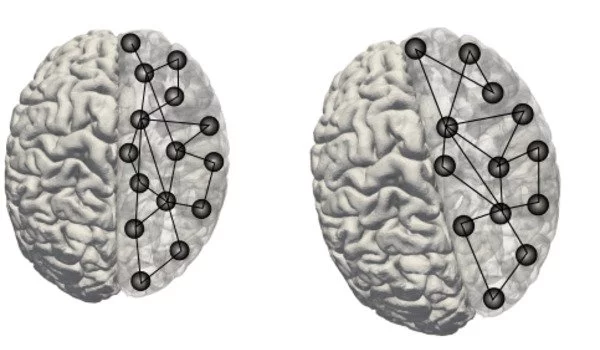Stunting in infancy, defined as a child’s stunted growth and development as a result of starvation, inadequate nutrition, or frequent illnesses, can have long-term effects on cognitive and brain function.
According to new research, toddlers who are excessively short for their age can have impaired cognitive ability as early as six months old. Researchers examined the ‘visual working memory’ of children with stunted growth to that of youngsters with average growth. They discovered that newborns with low physical growth had their visual working memory impaired, making them more easily distracted and setting the scene for inferior cognitive capacity one year later.
According to recent research from the University of East Anglia, children who are excessively small for their age can suffer from impaired cognitive ability due to changes in brain activity as early as six months of age.
The researchers evaluated the ‘visual working memory’ (the memory capacity that stores visual stimuli for processing) of children with stunted growth to those with regular growth.
Typically-developing infants in our study showed engagement of a working memory brain network – and this brain activity predicted cognitive outcomes one year later. But the stunted infants showed a very different pattern suggesting that they were quite distractable.
Prof John Spencer
The study, published in the journal Nature Human Behaviour, discovered that newborns with low physical growth had their visual working memory impaired, making them more easily distracted and setting the foundation for inferior cognitive capacity one year later.
Stunted growth has previously been related to poor cognitive results later in life, but this is the first time this link has been discovered in infancy. This is also the first time that stunted growth has been linked to functional abnormalities in how the brain functions during early development.
The team of researchers, led by Prof John Spencer of UEA’s School of Psychology, evaluated almost 200 children in the first brain imaging study of its sort.
“We expected that poor growth might impact cognition in early development, but it was striking to see this at the level of brain function,” Prof. Spencer stated.

“Typically-developing infants in our study showed engagement of a working memory brain network – and this brain activity predicted cognitive outcomes one year later. But the stunted infants showed a very different pattern suggesting that they were quite distractable.”
“This distractibility was associated with a brain network typically involved in the allocation of attention to objects or tasks, suppressing distraction, and maintaining items in working memory,” stated first author Dr Sobana Wijeakumar. Dr. Wijeakumar is an Assistant Professor at the University of Nottingham’s School of Psychology.
The infants’ brain activity and cognitive abilities were measured at six to nine months of age, and cognitive capacity was followed up on one year later. The findings revealed that newborns with’stunted growth,’ which is often caused by inadequate nutrition or illness, had significantly worse cognitive capacities at both stages than their usually developing counterparts.
Surprisingly, the children who defied the tendency and performed well in their second year of cognitive testing despite limited growth were those whose visual memory had been unexpectedly high at the six to nine month stage.
The finding implies that efforts to increase working memory and distractibility in children during their critical early months may lessen or prevent cognitive impairments later in life. This study also emphasizes the significance of investigating brain function throughout early development.





